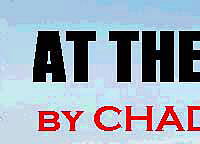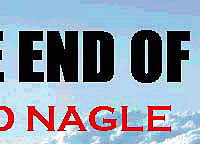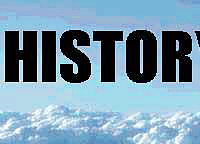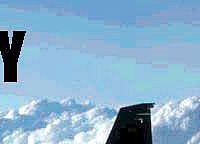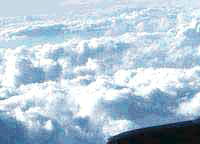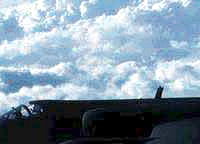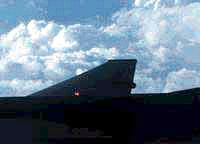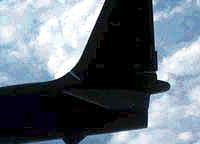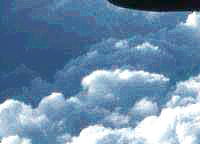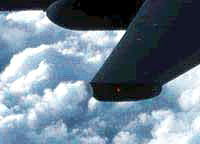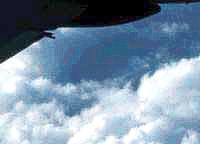|
January
12, 2001
Serbia
Joins the West
Recently,
when US Secretary of State Madeleine Albright gave a television
interview on ABC's This Week, the subject of the Balkans
came up. Madame Secretary's comments went to the effect that the
creation of a "united Europe" always been one of President
Clinton's top foreign policy priorities, and the fall of Yugoslav
President Slobodan Milosevic's regime had brought that grand goal
closer to realization. It was almost a relief to finally have
that out in the open. Not only is Washington not wary of a European
Union an entity with little or no popular legitimacy outside
circles of hack bureaucrats and formally educated mediocrities
but we actually want one. And Serbia's collapse was an
important step. The "double-whammy" the West used to
force Serbia to its knees 78 days of round-the-clock bombing
followed by intense, behind-the-scenes intervention with dirty
money in Yugoslavia's domestic electoral politics created the
latest in a long line of poor, broken-spirited countries to go
from sovereign nation to de facto region in the "common
European home." Uncle Sam's money and muscle won the day
again.
REMNANTS
OF THE OLD WORLD
On
December 21st, I visited Serbia for the first time.
The JAT flight from London to Belgrade was notable primarily for
one thing you could smoke. I couldn't remember the last time
I'd smoked on an intra-European flight, and I had every intention
of lighting up this time. Likewise, when we arrived at the Palace
Hotel in Belgrade, smoke was drifting up through the yellow lights
behind the reception desk as our smiling concierges checked us
in. Their friendly expressions would probably fade, I thought,
when some robotic official enforcing Nazistic EU anti-smoking
regulations snatched their cigarettes away and made them stand
out in the cold. Already, the seating arrangement on the plane
had changed. The smokers were now at the back, whereas not long
before it had been smokers on one side, non-smokers on the other.
The reforms were already taking hold, it seemed.
I
had traveled to many an ex-communist republic and sampled the
foul "cutlets" with canned peas and burnt french fries,
but was surprised to find nothing like it in the state recovering
from Milosevic's totalitarian nightmare. Instead, energetic waiters
beaming pride in their establishment's cuisine brought out myriad
dishes I'd never even tasted before. These were the kind of places
where you didn't need to ask for a menu. The waiters' faces seemed
to say: "Don't worry, we'll take care of you" and
you wanted them to. These guys hadn't been trained by some
Western chain to saunter timidly over to the table and ask for
our orders with sullen voice and feigned cheerfulness. They kept
our glasses full and always checked on us at just the right times.
Surely this had been an aberration under Slobo?
Anyway,
I enjoyed the wonderful food and wine while I still could. Once
the Serbs were fully reformed EU members, they'd be buying flavorless
tomatoes and other fruits and vegetables grown in chemical soup
and shipped in from some Euro-paradise like the Netherlands. No
doubt none of what we ate complied with international regulations,
and somehow knowing that made it taste even better.
Central
Belgrade has a very attractive old promenade of shops and restaurants,
and the many secondhand bookstores and galleries surrounded by
interesting architecture make it worth a stroll, even in the biting
December cold. As of the evening of December 23rd,
the streetlamps still worked and several of the bars and cafes
looked inviting enough to bring a traveler out of the cold for
a little slivovitz. But the signs of reform had already begun
to appear here too. The prototype of the bar of the future techno-disco
blasting amid trendy, garish décor was visible here and
there. These were the kind of places that served bad pizza and
other foreign delicacies to the new generation that strutted around
in high-top sneakers and acrylic jackets with sport team logos
on the back. This was the new breed who would soon learn terms
such as "totally" and "y'know" and "like"
and "awesome." The imminent full triumph of reform would
probably see these impressive human specimens in charge of revamping
the old promenade one day.
BUT
WHAT ABOUT DEMOCRACY?
Exactly.
What about democracy? After all, aren't there more important
concerns than whether you can smoke, eat food that has a taste
to it, be free of loud pop music, and not have to confront pushy,
Nike-wearing Bulls fans?
I'd
come to Serbia to observe an election. What Western media was
billing as the first truly "free and fair" election
in Yugoslavia's history was due to take place on December 23rd.
Somehow, the West knew in advance that the election would
be free and fair, just as it knew in advance that the Yugoslav
presidential election in September would be rigged. How did the
West know? Well, it just did, that's all. These were the new "democrats"
running the show, not that monstrous Milosevic and his "Socialists."
The
ballot was going to be exactly the same all across Serbia. Eight
party lists would be featured on the ballot, and every citizen
of Serbia would vote for one of the lists. The name of the party
would appear in bold capitals, in most cases next to the name
of the "leader" of the list, also in bold caps. For
example, next to the coalition of eighteen "parties"
called the Democratic Opposition of Serbia (DOS) was printed the
name of Dr. Vojislav Kostunica the leader of the "Democratic
Party of Serbia" (DSS). But Dr. Kostunica wasn't actually
running in the Serbian parliamentary elections because he was
already President of Yugoslavia. Rather, the number one candidate
on the DOS list, whose name appeared in much smaller type below,
was Dr. Zoran Djindjic, leader of the "Democratic Party"
(DS). It proved impossible to find anyone outside of DS party
headquarters with anything good to say about Djindjic DOS's
candidate for Serbian prime minister. Could the idea have been
to get Djindjic in office by having people vote for Kostunica?
|
Text-only
printable version of this article
Chad
Nagle is a professional writer and lawyer licensed in the District
of Columbia. He has been published in the Wall Street Journal
Europe, the Washington Times, and several other periodicals. Mr.
Nagle traveled extensively throughout the ex-USSR from 1992-97
as a research consultant. Since mid-1999, he has traveled widely
in the former Communist bloc on behalf of the British
Helsinki Human Rights Group.
His
column, At the End of History, will appear on alternate Fridays
on Antiwar.com.
Previous
articles by Chad Nagle
Death
of a Patriot
8/31/00
The
Twilight of Sovereignty in Azerbaijan
7/14/00
The
Ukrainian Model of Democracy
5/5/00
The
Slow Strangulation of Democracy in Slovakia
3/28/00
Patrick
Buchanan and the American Reformation
1/25/00
The
Betrayal of Democracy in Post-Soviet Georgia
11/30/99
|
PARTY
TIME
On
the day before the election, I sampled the fruits of the new democratic
pluralism that had swept Yugoslavia after the "democratic
coup" on October 5th. I started with the DS, whose
headquarters is a historic old house in an area of Belgrade where
a lot of foreign embassies are. The ceilings are paneled with
dark, ornate woodwork and a portrait of party founder Ljubomir
Davidovic (1863-1940) hangs in the foyer. As I waited with a colleague
for a representative to meet us, who should enter but the black-shirted
Dr. Djindjic himself! Slinking in out of the cold with his bodyguards,
Dr. Djindjic removed a glove to shake our hands. Wow. So I had
finally met the great Serbian reformer and golden boy of the West.
During
the Bosnian War, Djindjic had been an avid supporter of the Bosnian
Serb leaders indicted for war crimes by the Hague and even
called for an Anschluss between Serbia and the Bosnian Serb Republic.
In fact, he was a close associate of Bosnian Serb leader Dr. Radovan
Karadzic, and was the last Serbian politician to meet with Karadzic
before the latter disappeared into "obscurity" in September
1996. Djindjic had ostensibly been an extreme Serbian nationalist,
but somehow he avoided Western incrimination and turned into the
most "multicultural" and politically correct politician
in Serbia! Multi-culti Zoran a man who said in the early nineties
that it was "absurd" to compare Milosevic with Saddam
Hussein (as Western media, pundits and politicians have done consistently)
had magically morphed into a clone of German Defense Minister
Joshka Fischer (a doppelganger) and a darling of the States. Some
Serbs had told me they were convinced Djindjic was a Western agent,
but they were obviously just sore losers. This was truly a great
moment, and too brief. The great man scurried up the stairs as
quickly as he'd come in.
The
DS headquarters were fully reformed. Not only did no one there
smoke, but smoking was completely prohibited. Aleksandra Joksimovic,
"international secretary" of the Party and a candidate
for Parliament, led us to a sterile office for an interview. She
could have been Djindjic's sister a round, Martian-like face
with blank disks for eyes.
Joksimovic
liked to speak in triumphalist phrases, sitting with arms folded
across her chest the whole time. The Revolution was not quite
over, she said, because "real power" lay at the "republican
level." Hmm. So President Kostunica wouldn't have as much
power as Prime Minister Djindjic after the election? "After
December 23rd," she declared, "we will be
able to take actions immediately." The posts in the
new government were "already assigned."
What
about the allegations that heads of enterprises and other officials
throughout Yugoslavia had been forcibly removed (sometimes at
gunpoint) without even a pretense of procedure? Well, DOS obviously
had to sweep away the filth of the old regime. Yugoslavia, she
said, was "second to Nigeria" in terms of corruption,
and the new regime would establish a "controlling commission"
to "identify those responsible" and root out the evil.
"This is not revenge," she said. "Simply justice."
The Martian eyes were really gleaming now.
The
Socialists would get much less than 38% of the vote this time
because last time "they controlled the media." What
about reports that DOS had monopolized the media to the exclusion
of the other parties, particularly the Socialists? Laughingly,
Joksimovic conceded that, of course, the "autocensor"
was working in overdrive right now, but that was only to be expected.
"Those in the media who defended the old regime enthusiastically
will be removed." But what if they defended the regime out
of genuine conviction? Clearly, some people were "confused"
and the Party would cure them of their illness. "There will
be no loyalty except loyalty toward the Party. There will be no
love, except the love of
"
As
my colleague and I headed over to the DSS, we saw politically
active young children fulfilling their civic duty by scraping
Socialist Party posters off the walls. At DSS headquarters (much
less lavish than DS's), we were greeted by young Alexander Popovic,
Vice President of the Party, and Durde Ninkovic, whose card described
him as "Member of the Main Board." The office suite
did look very corporate, so it was probably only natural to have
a board member or two about. Here you could smoke, although neither
of our hosts indulged. Again, the portrait of Ljubomir Davidovic
founder of not one but two parties! "We're always
happy to meet with friends," they said presumptuously.
Popovic
and Ninkovic were "nicer" than Joksimovic. But they
both wore looks like they'd been caught with their hands in the
cash register, and it only got worse as the interview went on.
"We still don't have a list of all the officials for the
new government," said Ninkovic. But Ms. Joksimovic at the
DS their main partner in the coalition said most of the posts
had already been assigned! "Ask Mr. Djindjic," Popovic
piped in. "It was not negotiated at DOS meetings." Really?
Who was running this "coalition" anyway?
And
what about the issue of Djindjic's popularity? Current polls showed
him with an extremely low rating among the people disturbing
for a future head of government and most powerful politician in
Yugoslavia. "There is a question more important than who
presides over the government," said Ninkovic, such as "democracy,"
for example. "We had to fight for power and take over, so
we don't expect anyone to be happy with our government."
Very "democratic" indeed.
What
about allegations that DOS had received upwards of $100 million
in financial support indirectly from the US State Department
through front organizations like the International Republican
Institute (IRI) and the National Democratic Institute (NDI)? "DSS
never received a single cent from the US, and the State Department
confirmed this a month or so ago," said Popovic, agitated.
Well, if the State Department said so it had to be true.
But what did they make of the charges? "You should ask Ms.
Joksimovic," said Popovic. Does the right hand know what
the left hand is doing? "If the DS was receiving money from
the US, it was only to address previous imbalances," added
Ninkovic timidly. Besides, he said, the money was more like "five
or six million dollars." Ah, well that's okay then, isn't
it.
So
what about the kids outside scraping Socialist Party posters off
the walls? "They aren't doing this for anyone else, only
themselves," said Ninkovic. Where did they suppose the scraping
tools came from? Silence, shrug, giggle. Was there any future
for the Socialists in Yugoslavia's political life? "We think
we need a left-of-center party in our political life," said
Ninkovic. Spoken like a true right-of-center man of conviction.
The
clincher came when we got onto the subject of Yugoslavia's integration
into international structures like the EU. "If the EU wishes
to integrate Yugoslavia," said Ninkovic, "it will have
to subsidize our agriculture." He didn't seem to have a very
clear idea about what that meant, or about how living costs would
skyrocket and leave many Serbs picking scraps out of the rubbish.
Already, in one month of "reform," consumer prices had
gone up by 23%. "We will negotiate and try to obtain better
prices." But did they concede that after NATO's war the sovereignty
of their country was forever diminished? "Yes." Did
it not concern them that the "freedom and democracy"
they championed meant losing power over their internal affairs?
At the point when all our questions were met with "Whatever
we do will be in the best interests of our people" it was
time to leave.
At
Socialist Party headquarters, not only were you allowed to smoke,
but the representative Vladimir Krsljanin put away quite a
few during our meeting. Obviously unreformed, Krsljanin spoke
in heavily-accented English as he laid out the plot for us. "The
question now is whether there will be any vote in Kosovo at all,"
he said, handing us copies of the complaints his party had filed
with the Central Election Commission, Supreme Court, and the Organization
for Security and Cooperation in Europe (OSCE). "The regime
knows that a majority in Kosovo would vote for the Socialists,"
he said.
In
the federal parliamentary elections in September, the Socialists
had received about 32.5%, while DOS obtained about 40%. "Barring
falsification," said Krsljanin, "we expect DOS to get
less." Evidently, shortages of heat, electricity, and basic
necessities in recent months would mean that many people wouldn't
vote at all.
A
domestic NGO called "CESID" which stood for something
like "Center for Electoral Systems and Research in Democracy"
had received "a lot of Western money and recruited 1,500
observers." There were many instances, said Krsljanin, of
CESID influencing voters by handing out booze and drugs. The non-governmental
organization called "Otpor" (Resistance) which made
such a big splash during the October "Revolution"
had adopted a new slogan for its black-fisted posters. The word
"Overi," said Krsljanin, literally meant "verify,"
but had another connotation in Serbian. It was used to denote
how the Mafia made sure a body was dead by putting three extra
slugs into it. The notorious "climate of fear" attributed
to Slobo now seemed to be emanating from a shady youth organization
with lots of Western cash. "The official site of USAID (US
Agency for International Development) shows the sums spent for
what," said Krsljanin. "IRI was the one to deal with
Otpor and help them organize," he complained. "And now
they're constantly misusing schoolchildren
Our complaints to
the OSCE have met with nothing."
What
did Krsljanin make of the fact that Kostunica was shown constantly
on television, meeting with the very Western leaders that had
led the attack on his country? (The Leader of the Revolution even
stopped off in Switzerland on his way back from meeting loathsome
French President Jacques Chirac, although whether this was to
make a deposit or withdrawal remained a mystery.) "Kostunica
has to play the role of a Yugoslav Gorbachev," said Krsljanin.
"He must preside over the disintegration of Yugoslavia."
But wasn't Kostunica the champion of Yugoslav sovereignty? "Djindjic
said on Kostunica's inauguration day that a Union of Serbia and
Montenegro' would ultimately replace Yugoslavia," he said.
"Kostunica is no longer needed."
DEMOCRACY
IN ACTION
I
had no previous Serbian election to compare with this one, only
elections in the ex-USSR, usually marked by chaos and squalor.
However, there did seem to be a lot of greasy-faced, menacing
youths hanging around in the polling stations. They seemed to
be fond of operating the little spray bottles and the infrared
scanners. People coming in to vote got their right index finger
scanned to make sure they hadn't voted yet, and then got sprayed
with a little radioactive liquid on the way out. Why don't they
introduce that system in America, I thought? Some of the older
people were slightly perturbed at having to subject themselves
to so demeaning a process, but were usually "persuaded"
by the youths.
The
CESID observers were everywhere, often sitting off to the side
with a list, and their eyes seemed to be speaking the other new
Otpor slogan "We are watching you." The clear plexiglass
ballot boxes a novelty in Serbia paid for by the West sure
helped show the polling station workers how many people had voted.
But they could also reveal how they voted. The flimsy ballot
sheets were folded in half once before voters dropped them through
the slot, and they sat there partially open at eye-level with
the "observers" on either side. Some of the older voters
looked lost. They fingered the ballot boxes in an attempt to open
them and wandered behind booths where others were filling out
their ballots before being told to move away. You could hardly
blame the poor old souls. With the likes of Otpor "watching"
them, they no doubt wanted to make sure they voted for the right
party.
Election
commission heads had all changed since the Revolution, of course,
frequently more hip and casual looking in their leather jackets.
But their casual nature didn't extend to procedure. Our stamped
ID badges weren't enough for them. Everywhere we went it was "where
are your papers?" The unshaven, earring-wearing punks who
invariably looked like they were recovering from a night of heavy
drug use liked to move in real close when we were talking to
the commission chairmen.
VICTORY
The
result: an overwhelming victory for the Revolution 176 seats
for DOS out of 250. Barely 50% of the electorate was recorded
as having voted but hey, who was counting? OSCE Parliamentary
Assembly President Adrian Severin said afterwards he was pleased
to see such huge support for "democratic" forces, but
was disturbed by the number of votes cast for "nationalist"
parties. The message to the new Serbian leaders, presumably: "We
are watching you." One of these nationalist parties was Vojislav
Seselj's Radical Party (SRS), which had joined in opposition to
Milosevic at the time of the Revolution. The "surprise"
was the Serbian Unity Party of assassinated paramilitary leader
Zeljko Raznatovic (better known as "Arkan"), also a
confidante of Zoran Djindjic during the Croatian and Bosnian wars.
Presumably, it helped for Djindjic to face an opposition party
led not only by a friend, but by a dead friend. Between
them, SRS and Arkan claimed 37 seats out of 250 pathetic, but
enough to "disturb" Mr. Severin. Ivan Ivanov, the Foreign
Minister of Russia (which under Putin has always shown a willingness
to accommodate the West for the right sum), heaped instant praise
on the results as a "positive" development for the region.
A
BRIGHT TOMORROW
The
blackouts started the day after the election as reform quickly
took root. Large public protests against the loss of heat and
electricity received fleeting coverage in the press, as if they'd
evaporated even without the lights coming back on. Kostunica,
the Hero of the Revolution, had already brought up the prospect
of Yugoslavia's dismemberment in an interview, and Zoran Djindjic
was assuring the public that relations between Serbia and Montenegro
would soon be "redefined." I found it hard to believe
average Serbs were more concerned with whether Djindjic headed
a national or a sub-national government than they were with raw
survival or avoiding the effects of depleted uranium from NATO's
bombs.
But
then maybe that was the point.
From
here on out, it doesn't matter what ordinary Serbs want, only
the wishes of the Party. Washington and Brussels will call the
shots in Yugoslavia now. Serbs do have "democracy" and
"reform" though, and prospects for membership in the
EU and even NATO loom on the horizon. They can always console
themselves with those bright notions while they're shivering through
this winter in the dark.
Please
Support Antiwar.com
A
contribution of $50 or more will get you a copy of Ronald Radosh's
out-of-print classic study of the Old Right conservatives, Prophets
on the Right: Profiles of Conservative Critics of American Globalism.
Send contributions to
Antiwar.com
520 S. Murphy Avenue, #202
Sunnyvale, CA 94086
or
Contribute Via our Secure Server
Credit Card Donation Form

or

Have an e-gold account?
Contribute to Antiwar.com via e-gold.
Our account number is 130325
Your
Contributions are now Tax-Deductible
|
